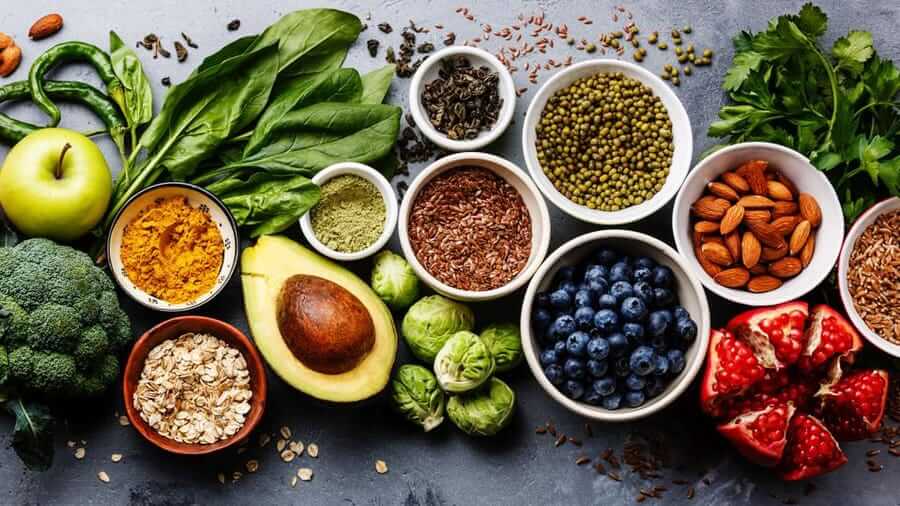The word metabolism is often combined with diet, exercise, and supplements. Surely you have ever heard that speeding up your metabolism is essential for losing weight.
But what it means to speed up your metabolism is rarely fully explained. As a result, there is a lot of misinformation about metabolism out there.
This article discusses metabolism and whether it is possible to accelerate this process with food and exercise.
What is metabolism?
From a biological point of view, metabolism is the term that involves all the energy conversion processes of the body, including digestion, physical and mental activity, and even breathing and sleeping.
In other words, metabolism is the sum or indicator of the fuel your body uses per day.
There is something called a basal metabolic rate to measure how much energy your metabolism or metabolic expenditure uses. This depends mainly on your age and gender. Physical activity must be added to the total metabolic rate. Your body’s composition – fat vs. muscle – has very little influence on the energy you expend per day.
And the basal metabolism?
Several types of metabolism can be distinguished depending on the point of view that you look at it.
In terms of nutrition, basal metabolic rate is worth noting. This is the energy expenditure of a person when he is at rest, sitting in the office, or simply watching TV.
Accelerate basal metabolism can not. Although some claim that by having more muscles, you will spend more calories, the fundamental differences in calories are equivalent to eating half a fruit per day.
¿Accelerated or slow metabolism?
It is a fact that metabolism slows down with age. At an older age, metabolic processes are less effective in transforming energy from food.
A slow metabolism can be generated by an excess of poor-quality food. For example, foods with an insulin index. These groups alter the levels of hormones in our body, and in the long run, they change the ability to metabolize carbohydrates.
Avoiding excess sugar and following a low-carb diet for short periods is an excellent strategy to prevent a slow metabolism.
Also, foods high in trans fats (reheated vegetable oils, industrial cookies, donuts) can cause a slowed metabolism. This is because this type of fat is very stable and very difficult to eliminate from the body.
How do you speed up your metabolism? – 10 tips
Accelerating the metabolism permanently is not possible.
It is essential to understand that metabolism is a complex process: the body is a dynamic system that adapts to its environment.
However, you can temporarily speed up your metabolism.
To accelerate metabolism, you must select foods with high nutritional value and combine them with an active life and physical activity. Carrying out healthy eating rules is a simple method of improving biological functions.
Here are ten tips to speed up your metabolism:
Limit simple carbohydrates, simple carbohydrates, or fast are molecules that unbalance the mechanisms of the body to regulate hunger. This leads a person to overeat, ultimately leading to a slow metabolism. If you want to speed up the metabolism, you must eliminate them from the diet.
- Include probiotics and probiotics in the diet
Consuming probiotics and prebiotics in the diet can help process some foods. One of the effects of increasing the number of beneficial microorganisms in the stomach is to accelerate the metabolism of the digestive tract.
- Include foods with Omega-3
The lack of Omega-3 fats slows down the metabolism. Reduces the effectiveness of the immune system and causes the development of internal micro-inflammations. Including foods with Omega-3 such as salmon, flax seeds, and chia is essential to maintain the balance of healthy fats in the body.
- Alternate carbohydrates
To speed up the ball metabolism, carbohydrate foods should be the primary energy source in the diet. However, an excess makes fat burning impossible. Alternating muscle-building days with an extra dose of carbohydrates and lowering the amount on cardio days is a method used by sports experts to eliminate different types of body fat.
- Don’t overeat at night.
The habit that dinner is the main meal of the day indirectly affects basal metabolism. Not because you shouldn’t have dinner. Several researchers have confirmed that the time of day cannot speed up the metabolism or not. (4) (5) If not, you tend to overeat when you arrive at night hungry. In the long term, the stomach expands, and the person gets used to the need to eat more and more.
- Measure portions of meals
Obsessively counting calories is not the solution to speed up your metabolism. It tends to stress a person in the long term. However, measuring portions is a simple task to avoid overeating; you have to know your eating amounts.
- Treat yourself on the weekends.
When the objective is to accelerate the metabolism, it must be remembered that the brain is also a participant. Excessive food control will only cause you to overload yourself and completely abandon new habits. Ice cream or a beer with friends will have a positive effect on accelerating the metabolism in the long term.
- Determine the body somatotype
The body somatotype is the genetic predisposition that a person has to gain or lose weight. This is one of the steps you have to know to know where you are standing. An ectomorph does not need to speed up basal metabolism; an endomorph does.
- Moderate thermogenics
Thermogenic are substances that speed up metabolism indirectly. They stimulate the central nervous system and make a person more active. Consuming 100 mg of caffeine is an excellent way to boost your metabolism. However, if you overdo it with the amount, it can unleash psychological disorders such as anxiety.
- Eating more times a day is not the solution.
Several studies (6,7) confirm that eating more times a day is not an effective method to accelerate metabolism. Although it is a strategy to control the feeling of hunger, you should not expect results from eating five times a day or 3.
Foods to speed up the metabolism
Some food groups are capable of modifying the processes of obtaining energy from food. While their effects are minimal, probiotics, prebiotics, and spicy foods are types of foods that can help speed up your metabolism. This type of food modifies the intestinal flora and helps process the rest of the food.
Examples of foods to speed up metabolism:
Probiotics:
- Kefir and yogurt
- Cheeses
- Checkout
- Pickles
- Soy-based drinks
- Japanese miso soup
- Korean Kim-chi Plato
- Kombucha
Prebiotics:
- Asparagus
- Onions and garlic
- Natural honey
- Chicory root
- Green bananas
- Sprouted cereals
- Seeds
- Bananas
- Berries (blueberries, strawberries)
Can you change your metabolism to lose weight?
Suppose an overweight person decided to lose a few pounds. He began an aerobic exercise and a low calorie diet. You also read on the internet that to speed up your basal metabolism, one needs to drink more water and do the pineapple diet due to fat-destroying enzymes.
However, at six months, he went to a nutritionist, and the result in accelerating the basal metabolism was negative. Why?
The reason: By taking these steps, the body signals to the brain that it needs less energy to survive—the stricter the person is on a diet, the stronger the “savings” signal. So the body begins to slow down the metabolism to conserve its last stores of fat.
Also, leptin levels, the hunger hormone, get out of control. They are causing a feeling of constant hunger and stress. Ultimately, the person ends up abandoning the diet and gains those lost kilos in weeks.
Other tips to speed up your metabolism
The best way to accelerate the metabolism is to carry out a healthy diet and complement it with aerobic exercises or high intensity workouts such as Tabata, HIIT, and CrossFit.
Another strategy is to do the ketogenic diet cyclically; this is an effective method to optimize carbohydrate metabolism. However, this method should not be prolonged for periods longer than 6 – 12 months and should always be authorized by a doctor.
Over time, extending these methods can cause adverse effects on hormonal levels; instead of accelerating the metabolism, they will cause the opposite effect.
Muscles, the liver, and the brain are the organs with the highest metabolic expenditure.
As you can see in the table, the muscles, the liver and the brain are the organs with the highest metabolic expenditure. Stimulating the work of the liver is not a good idea in terms of health.
However, promoting the metabolic output of muscles is one way to boost metabolism healthily. Below you can see the energy costs of each organ.
| Organ | Energy expenditure |
| Muscles | 18% |
| Liver | 27% |
| Brain | 19% |
| Kidney | 10% |
| Heart | 7% |
| Rest of the body | 19 % |
Organ metabolic expenditure table. Source
Following this concept, an athlete’s body consumes more calories, which translates to a faster metabolism. In other words, accelerating metabolism through physical exercise is possible.
A clear drug metabolism?
Using fat-burning medications to speed up your basal metabolism is not a good idea.
While it is true that some medications are capable of modifying fat metabolism, these tend to have a long list of side effects.
Unfortunately, consuming fat burners can lead to dizziness and liver and kidney disease. They also tend to have a rebound effect.
Importance of metabolism
Metabolism is of great importance for regulating body weight and maintaining optimal health. Changes in energy consumption or expenditure can cause long-term benefits or consequences for the body.
A correct diet is reflected in the diseases that a person can suffer. For example, starting to exercise and increasing muscle mass are two factors capable of preventing severe chronic diseases such as osteoarthritis and osteoporosis in adulthood.
For this reason, it is said that the importance of regulating metabolism is not aesthetic but medical. (1)
The following video explains how metabolism works from a dynamic and straightforward approach.
ABSTRACT
Metabolism is the set of energy transformation processes that occur in the body. The term basal refers to the metabolic expenditure of a person at rest.
Accelerating the basal metabolism with food is possible. However, it is not about making strict diets but about carrying out a healthy diet.
Increasing lean muscle mass, including probiotic and prebiotic foods, and alternating the number of carbohydrates in the week are effective strategies to speed up the metabolism.
You need to eat healthily and exercise regularly to speed up your metabolism. Diets with a substantial calorie reduction, such as the Dukan diet, can cause a slow metabolism if maintained for long periods.







